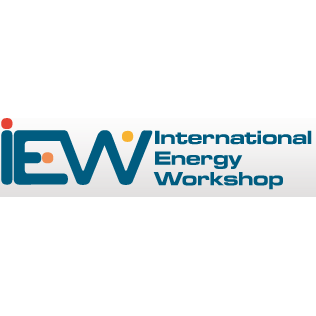
CALL FOR PAPERS: 41st International Energy Workshop
| Golden, CO, US, 13-15 June, 2023 Deadline for paper submission: 01 February 2023 |
| The 41st edition of the International Energy Workshop (IEW) will be co-hosted by the the Colorado School of Mines and the National Renewable Energy Laboratory in Golden, CO, on 13-15 June, 2023. The IEW is a leading conference for the international energy modelling community. In a world of environmental and economic constraints, energy modelling is an increasingly important tool for addressing the complexity of energy planning and policy making. The IEW provides a venue for scholars and researchers to compare modelling tools, to discuss modelling advances for emerging energy sector issues, and to observe new trends in the global energy sector. Call for Papers – The deadline for paper submission is February 1st, 2023 Researchers and practitioners from countries around the world are invited to submit original papers with new and innovative results on scientific, technical and practical experience on the economics of energy and climate systems. As is customary for the IEW, papers should be quantitative and rigorous. A (non-exclusive) list of potential conference topics is: Reaching net-zero emissions and climate neutrality: modelling the clean energy transition; sectoral and economy-wide modelling and analysis of transition pathways for demand and supply sectors Multisectoral net zero carbon analyses: modelling and analysis that provides critical new insights to the intersection between and among energy sectors such as power, fuels, chemical, mobility. Managing power system transitions: addressing flexibility and system aspects for the integration of variable renewables and electrified end-uses; market design; integrated modelling looking at future energy systems and dealing with short-term issues Clean energy infrastructure: supporting infrastructure to enable decarbonization, including electrical transmission, EV charging, hydrogen distribution and dispensing, manufacturing and supply chains transformations Technology insights: role of technologies in the energy transitions (e.g. CCUS and negative emission technologies, hydrogen, nuclear, energy efficiency, synthetic fuels) Energy access and transition for communities and cities: assessing sustainability development in urban and rural communities in developing and developed countries Energy security: efforts to make climate change mitigation compatible with increasing domestic and regional energy independence (e.g. in response to recent geopolitical developments) Socioeconomic analysis of the energy transition: employment, skills, health, investments, consumer bills, social acceptance and resistance, integrating behaviour in energy models such as sufficiency Circular economy: supply chains, materials extraction, recycling/reuse of critical materials Climate and energy systems: bridging the gap between climate and energy modelling, and reflecting extreme events for resilient clean energy systems Selected papers will be presented and discussed in thematic sessions, circulated during the meeting, and also posted on the meeting website. Submission of papers Full papers or long abstracts (minimum 1000 words) in .pdf format should be submitted online at IEW 2023 no later than February 1st, 2023. Please note that paper selection has become increasingly competitive in recent years. Submissions that fully describe a complete analysis are generally more likely to be accepted than long abstracts. In particular, when submitting a long abstract, please ensure that the study and results are sufficiently described to allow comparison with full paper submissions. Each person can present only one selected paper, although multiple submissions and co-authorship are allowed. Please kindly complete one online form for each submission. Abstracts and presentations submitted by the authors will be available online after the event. Authors will have the option to opt out and choose not to publish the abstracts or presentations on the conference website. IEA-ETSAP meetings IEA-ETSAP workshop will be held back-to-back with IEW 2023. More details will be available at IEA-ETSAP website. A separate registration to the IEA-ETSAP events will be possible via the web page given above. |